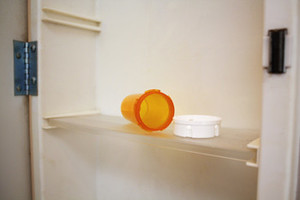Shutdowns of pharmaceutical companies have led to shortages of generic drugs in Japan, while in the EU, existing shortages have been exacerbated by the COVID-19 crisis.
In Japan, temporary shutdowns of pharmaceutical companies have created a shortage of more than 3,000 drugs, and mainly generics, the Asahi Shimbun reports.
For example, the pharmaceutical company Kobayashi Kako Co was hit by a 116-day suspension in 2021 (the longest ever suspension imposed on a pharmaceutical company in Japan) due to an error in the formulation of its itraconazole generic, an anti-fungal treatment for athlete’s foot.
The mistake is believed to have caused two deaths and illness in more than 200 people. Similar shutdowns have affected Nichi-Iko Pharmaceutical Co and Choseido Pharmaceutical Co, leading to suspensions or delays to shipments of 641 drugs from the three companies combined.
In total, an estimated 3,100 medications are affected by supply issues in Japan, representing more than 20% of drugs covered by the country’s national health insurance programme.
To tackle the shortages, the Ministry of Health have instructed the pharmaceutical industry to replenish to supply chain. For example, in December 2021 the Ministry urged the Federation of Pharmaceutical Manufacturers’ Association of Japan to increase production of generic drugs for hypertension and bronchial asthma.
However, some drugmakers are reportedly prioritizing medicines for longstanding customers, exacerbating supply chain issues. The Ministry of Health says it will take approximately two years for shipments to resume for all generic drugs affected by the shortages.
Similar problems are also facing the EU, where the COVID-19 crisis has exacerbated existing supply issues.
Between 2000 and 2018, medicine shortages in the EU increased 20-fold for reasons including manufacturing problems, industry quotas, legal parallel trade and pricing issues.
Shortages have been exacerbated by the COVID-19 pandemic which has led to unexpected increases in demand for some medicines, as well as decreased production, logistical problems, stockpiling and export bans. This has been a significant problem for the EU which is heavily dependent on non-EU nations for active pharmaceutical ingredients (APIs), with 80% of APIs being sourced from India and China.
As a result, in September 2021 EU Parliament adopted a resolution calling for the EU to become more self-sufficient in its medicines supply, by encouraging the local production of APIs, creating a reserve of medicines of strategic importance (an ‘emergency pharmacy’ for the EU), increasing joint EU procurement of medicines, and improving the flow of medicines between Member States.
In November 2021, EU Parliament issued a further series of recommendations for medicines, including calling for a patient-centred EU pharmaceutical policy and increasing resilience by preventing medicine shortages and securing supply chains. Updates to EU pharmaceutical legislation are expected in 2022.
Related articles
Progress in the regulation of biosimilars in the EU
FDA’s response to coronavirus
FDA identifies causes of drug shortages, recommends solutions
UK pharmacists gain powers to address drug shortages
Permission granted to reproduce for personal and non-commercial use only. All other reproduction, copy or reprinting of all or part of any ‘Content’ found on this website is strictly prohibited without the prior consent of the publisher. Contact the publisher to obtain permission before redistributing.
Copyright – Unless otherwise stated all contents of this website are © 2022 Pro Pharma Communications International. All Rights Reserved.
Source: The Asahi Shimbun; European Commission; EU Reporter








 0
0











Post your comment